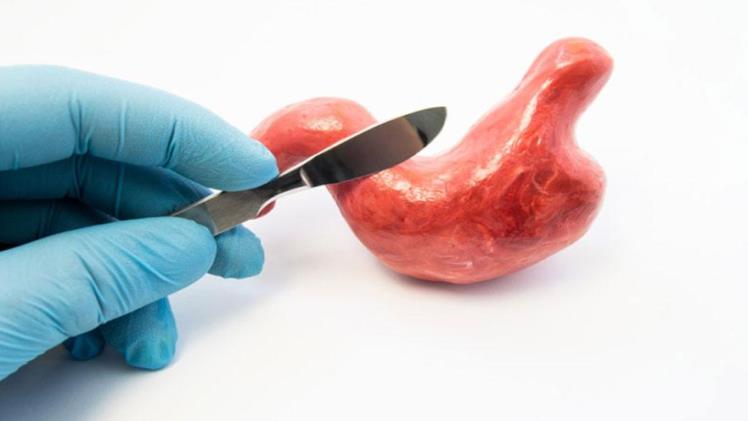Are you considering undergoing a gastric sleeve surgery but wondering about its longevity? Rest assured, you’re not alone. The longevity of the gastric sleeve procedure is a common concern among individuals considering this weight loss surgery. In this article, we will explore how long the gastric sleeve typically lasts and what factors can impact its effectiveness over time.
The gastric sleeve, also known as a sleeve gastrectomy, is a surgical procedure that involves removing a large portion of the stomach to create a smaller, sleeve-shaped stomach. This limits the amount of food you can consume and reduces your appetite, aiding in weight loss.
Studies and research suggest that the gastric sleeve procedure provides long-term weight loss success for most patients. While individual results may vary, many patients sustain significant weight loss for up to five years and beyond. Factors such as lifestyle changes, adherence to dietary guidelines, and regular exercise can play a crucial role in maintaining the weight loss achieved through the gastric sleeve procedure.
So, if you’re considering the gastric sleeve surgery, it’s essential to understand the potential long-term outcomes and commit to a healthy lifestyle to maximize the benefits of the procedure. Let’s delve deeper into the longevity of the gastric sleeve and what you can expect on your weight loss journey.
What is the gastric sleeve procedure?
The gastric sleeve, also known as a sleeve gastrectomy, is a surgical procedure that involves removing a large portion of the stomach to create a smaller, sleeve-shaped stomach. This limits the amount of food you can consume and reduces your appetite, aiding in weight loss.
During the procedure, the surgeon removes approximately 80% of the stomach, leaving behind a smaller pouch or sleeve. This procedure does not involve rerouting the intestines like in gastric bypass surgery. The smaller stomach restricts the amount of food you can eat, leading to a feeling of fullness with smaller portions.
Benefits of the gastric sleeve in Antalya
Antalya, a popular destination for medical tourism, offers several benefits for individuals considering the gastric sleeve procedure. The city is home to highly trained and experienced surgeons who specialize in bariatric surgeries. The cost of the gastric sleeve in Antalya is competitive compared to other countries, making it an affordable option for many.
Additionally, Antalya boasts state-of-the-art medical facilities equipped with the latest technology, ensuring a safe and comfortable surgical experience. The city also offers a range of accommodation options, allowing patients to recover in a serene and picturesque environment.
Benefits of the gastric bypass in Antalya
While the gastric sleeve is an effective weight loss procedure, it’s essential to consider the benefits of other surgical options, such as the gastric bypass, before making a decision. The gastric bypass involves creating a small pouch at the top of the stomach and bypassing a portion of the small intestine.
One of the key benefits of the gastric bypass in Antalya is its potential to provide greater weight loss compared to the gastric sleeve. Studies have shown that patients who undergo gastric bypass surgery tend to lose more weight in the long term. Additionally, the gastric bypass can also have a positive impact on resolving conditions such as type 2 diabetes and high blood pressure.
Factors that can affect the longevity of the gastric sleeve
While the gastric sleeve procedure can provide significant weight loss, it’s important to understand that individual results may vary. Several factors can influence the longevity of the gastric sleeve and its effectiveness over time.
One of the key factors is adherence to dietary guidelines and making appropriate lifestyle changes. Following a balanced and nutritious diet, avoiding high-calorie foods, and practicing portion control are essential for maintaining the weight loss achieved through the surgery. Regular exercise is also crucial in ensuring long-term success.
Another factor is the presence of underlying medical conditions. Certain medical conditions, such as hormonal imbalances or metabolic disorders, can make it challenging to sustain weight loss even after the gastric sleeve procedure. It’s important to consult with your healthcare provider to address any underlying conditions that may impact the longevity of the procedure.
How to maintain long-term weight loss after the gastric sleeve
To maximize the benefits of the gastric sleeve procedure and ensure long-term weight loss success, it’s essential to make sustainable lifestyle changes. Here are some tips to help you maintain your weight loss after the surgery:
- Follow a balanced and nutritious diet: Focus on consuming lean proteins, whole grains, fruits, and vegetables. Avoid processed foods and foods high in sugar and unhealthy fats. Consult with a registered dietitian for personalized dietary guidance.
- Practice portion control: Even with a smaller stomach, it’s important to eat smaller, frequent meals throughout the day. Avoid overeating or consuming large quantities of high-calorie foods.
- Stay hydrated: Drink an adequate amount of water throughout the day to stay hydrated and promote a feeling of fullness.
- Engage in regular physical activity: Incorporate regular exercise into your daily routine. Aim for a combination of cardiovascular exercises and strength training to promote weight loss and maintain muscle mass.
- Seek support: Join a support group or seek professional guidance to stay motivated and address any challenges you may face during your weight loss journey.
Remember, the gastric sleeve procedure is a tool to aid in weight loss, but long-term success relies on your commitment to a healthy lifestyle.
Lifestyle changes and support for long-term success
Undergoing the gastric sleeve procedure is a significant step towards achieving weight loss, but it’s important to recognize that it’s not a standalone solution. Long-term success relies on making positive lifestyle changes and seeking the necessary support.
In addition to following a balanced diet and engaging in regular exercise, consider the following strategies to support your weight loss journey:
- Seek emotional support: Weight loss can be emotionally challenging. Consider joining a support group or seeking counseling to address any emotional or psychological factors that may impact your progress.
- Stay accountable: Keep a food and exercise journal to track your progress and identify any areas for improvement. This can help you stay accountable and make necessary adjustments.
- Celebrate milestones: Celebrate your achievements along the way, no matter how small. Rewarding yourself for reaching milestones can help keep you motivated and focused on your long-term goals.
- Surround yourself with a supportive network: Share your weight loss journey with friends and family who can provide encouragement and support. Avoid negative influences or environments that may hinder your progress.
Remember, the gastric sleeve procedure is just the beginning of your weight loss journey. With the right mindset, lifestyle changes, and support, you can achieve long-term success and maintain a healthy weight.

